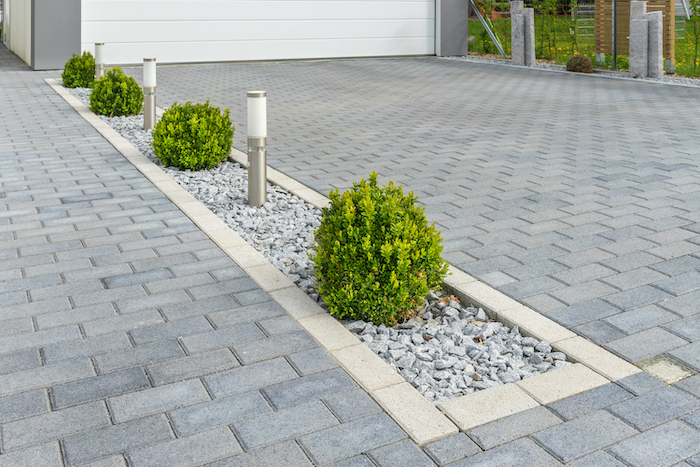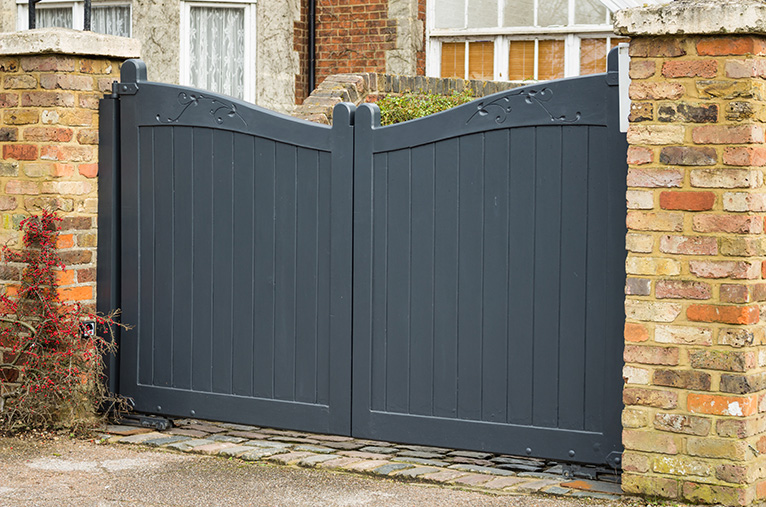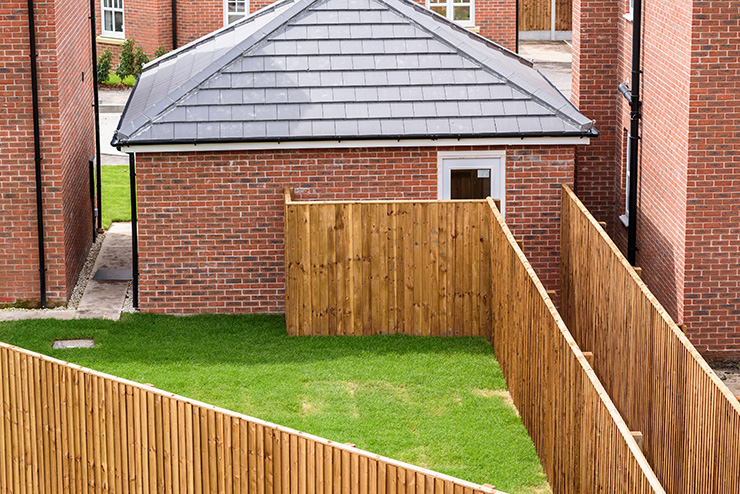Neighbour disputes: dealing with shared driveways, access points and fences

Boundary disputes
Property boundary disputes are a big source of frustration and confusion for homeowners. This is because lots of homeowners aren’t sure about boundary lines and don’t know who should take responsibility over the maintenance and ownership of a shared driveway, access point or garden fence. The lack of clarity can often result in arguments with neighbours.
The key thing to establish is who owns the land, as this will tell you of who is responsible for maintaining it. If you or your neighbours’ title deeds don’t clear up the situation, then you might have to hire a surveyor to determine exactly where boundaries lie.
This can help you clear up responsibility, helping you to prevent arguments. With all neighbour disputes, you should:
- Try and resolve the problem with a non-confrontational chat
- Look at your title deeds to see if your boundaries are clearly defined (if they aren’t, or you can’t understand them, then contact a surveyor to help you resolve the confusion)
- Use a mediation service to try and come to a mutually beneficial solution
- Contact your local council if your neighbour refuses to collaborate
- Consider hiring a neighbour disputes solicitor if your local council can’t resolve the problem
We also recommend you use the Royal Institution of Chartered Surveyors Helpline Scheme to get advice on how you can solve disagreements over boundaries.
For more information on solving neighbour disputes and legal advice, read our dealing with neighbour disputes guide.

Access point disputes
Access points and party wall agreements can often cause disputes, especially where a path is shared by two or more neighbours. You might find yourself arguing with a neighbour over right of way and access points if:
- Your neighbour continuously blocks an access way by parking in an area with limited space or which obstructs your ability to pass through
- Your neighbour might plant shrubs, trees or other landscaping features that make it harder for you to use the access point
- Your neighbour is using an access point without your permission, or trespassing on your property in order to use an access point
- You feel that your neighbour is using an access point incorrectly, or in a way that is disruptive or unreasonable
- Your neighbour might be regularly disturbing you by making a lot of noise whilst using the access point
- You don’t think your neighbour is doing their part to look after a shared access point (this can include arguments over who should pay for repairs and maintenance costs)

How can I resolve access point disputes?
If you approach your neighbour with any one of these complaints (or if they approach you!), make sure you establish clear boundaries and approach all queries about right of way or ‘easement’ with the goal of finding a win-win solution.
If your dispute is over parking, you can attempt to resolve the problem by deciding together where each of you are allowed to park, and any areas of a shared space that are off-limits for vehicles (for instance, an access point that you use regularly). You could also create a schedule for using the shared access way, so that you can both benefit from it without stepping on each other’s toes.
If your argument is about shared maintenance costs and labour, consider having a conversation where you both agree on how much to chip in before work begins. Setting up a schedule or rota for maintenance work is also a good idea. It will ensure both parties know when it’s their turn to complete a task and will hold you both accountable if you don’t!
If you want to prevent your neighbour from going through your property or access point without your permission, consider having a gate installed. Speak to a skilled gate installer today to assess your options.
Where you’re not able to resolve a problem between yourselves, always opt for a mediation service to help you come to a mutually beneficial solution. Hiring a neighbour disputes solicitor should always be your last resort, as taking legal action can be incredibly expensive.

What are the rules on shared driveways?
A lot of the problems concerning access point disputes are similar to those that can occur for neighbours who share a driveway. These include arguments concerning parking, maintenance and access.
There are plenty of potential pitfalls for people who share a driveway, due to the fact that there are several legal grey areas involved. Often, there is no legal contract that details how payment for maintenance of your shared driveway should be carried out. This means that you have to rely on reasonable neighbours, which isn’t always the case unfortunately!
The law on shared driveways requires ‘fair use,’ which means both parties must act considerately. This means your neighbour isn’t allowed to continuously block the driveway in a way that inconveniences you, either with a car or with building materials or skips (another common source of complaint).
How can I resolve shared driveway disputes?
As with access points, shared driveway disputes should be resolved by first having a non-confrontational chat with your neighbour. If this fails, you could try and use a mediation service, or contact your local council.
If this doesn’t work, you can always take legal action, but keep in mind that litigation will most likely be very expensive. Instead of spending large sums on legal fees, you could instead implement a more practical solution. This includes changing the design of your shared driveway to resolve the cause of the dispute, for instance by creating separate parking areas. You could also separate off the two sides of your shared driveway to create two smaller, individual driveways.
How do you split a shared driveway?
If altering your driveway is an avenue you’re considering, a driveway specialist can give you all the advice you need to get started on your project. Simply request a quote today.

What are my responsibilities with a shared fence?
Disputes over shared garden fences are also a very common source of conflict. Here in the UK, it’s usually the case that responsibility for a boundary fence is shared between both parties (unless stated otherwise in your deed)! This means that both of you will need to chip in to maintain, repair or replace a garden fence.
Who owns that garden fence?
Fence ownership depends on where the fence is placed. In general, the person who owns the land where the fence is located also takes responsibility for maintaining it. This is for instances where the fence is entirely on one person’s property. Often though, garden fences mark the boundary between properties, meaning that both parties will need to take responsibility for upkeep.
Checking your property deeds is the easiest way to resolve a dispute over who should look after a garden fence. If your deeds are unhelpful, you might need to hire a surveyor to determine exactly who owns and is responsible for a fence.
Once you establish shared ownership, you can then agree with your neighbour on shared costs for installing a new fence (or maintaining your one). Always do this before work is carried out. We also recommend you create a written agreement setting out all the details of the project, so that you can refer to it later on if problems arise.
To find out more, read our blog on fence ownership.

How do you hide an ugly shared fence?
If your dispute is due to your neighbour refusing to do their part to maintain a garden fence, you could always build a new fence directly in front of it. The boundary between your properties would then become the thin line in between both your fences. This would allow you to cover up the old or rotting fence that your neighbour is refusing to repair or replace.
Thinking of erecting a new garden fence? Speak to a skilled fence installer today.



